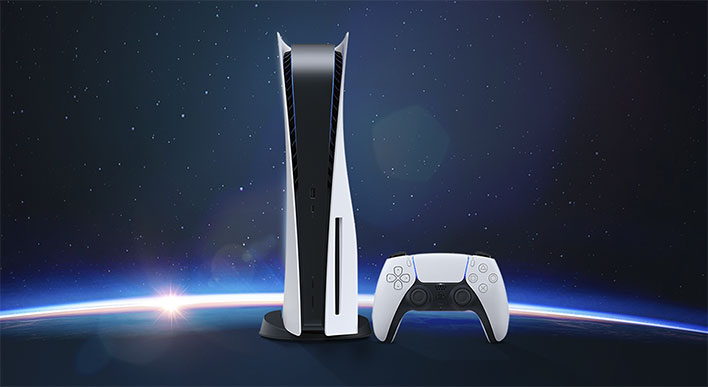Sony Posts Record Q1 Profit On Pandemic Demand Surge, Forecasts 14.8 Million PS5 Sales For 2021

There might be a console shortage, but even so, Sony says it is on track to sell more PlayStation 5 systems during its fiscal year ending March 2022, than it did PlayStation 4 consoles during its first fiscal year of availability. More precisely, Sony CFO Hiroki Totoki assured investors that managed to obtain enough semiconductors to hit its target of more than 14.8 million PS5 unit sales by March 2022.
Sony is already off to a fast start. The PS5 launched during the pandemic and quickly notched 2.3 million unit sales during the first quarter of Sony's current fiscal year. Since then, the number has grown to 10.1 million unit sales, making it Sony's fastest-selling console ever. When announcing that updated figure, Sony said securing more inventory was a "top priority."
Combined with its other segments, Sony just posted its highest quarterly operating profit ever, at 280.1 billion yen (around $2.58 billion in US currency). As a result, Sony raised its profit forecast for its fiscal year from 930 billion yen to 980 billion yen.
We will never know how many PS5 consoles Sony would have sold if Covid-19 never struck, but the push to social distance and stay at home are not the only reasons it is selling well. Sony's latest generation console is a powerful machine with fast hardware, including speedy storage to reduce load times and facilitate more expansive game worlds when fully utilized.
It's also been difficult to find in stock. Retailers sell the latest crop of consoles as fast as they can stock them. Sales may have even been higher if there wasn't a global shortage of silicon, though Sony is not fretting the situation.
"The shortage of semiconductors has impacts in various areas and through various measures, we have been taking some action," Totoki said during an earings call. "For PS5, the target has been set for the number of units to be sold this year, and we have secured the number of chips that is necessary to achieve that. Regarding the supply of semiconductors, we are not concerned."
That's good news for Sony, considering that Intel, TSMC, and other technology bigwigs have suggested the silicon shortage could stretch into 2023.
Sony is also making strides in its streaming efforts, having injected more content into services like Netflix, and inking deals to bring theatrical releases to Disney+ and Hulu. And back in May, Sony indicated it would spend 2 trillion yen over the next three years on various investments, including ones aimed at pulling in more subscribers to its gaming and entertainment offerings.

